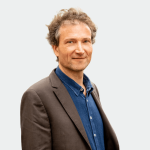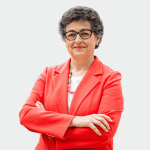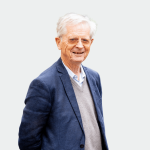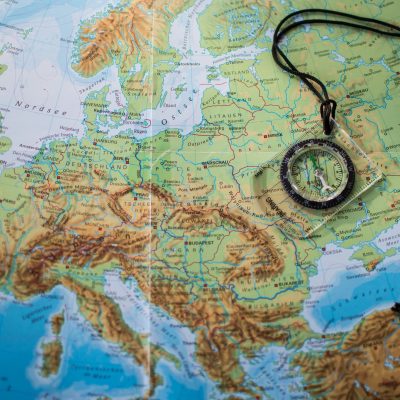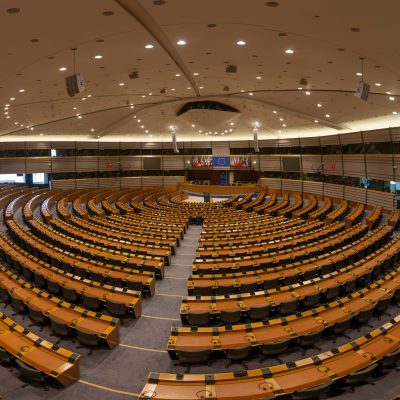[EN] Une communauté politique européenne pour une ère géopolitique
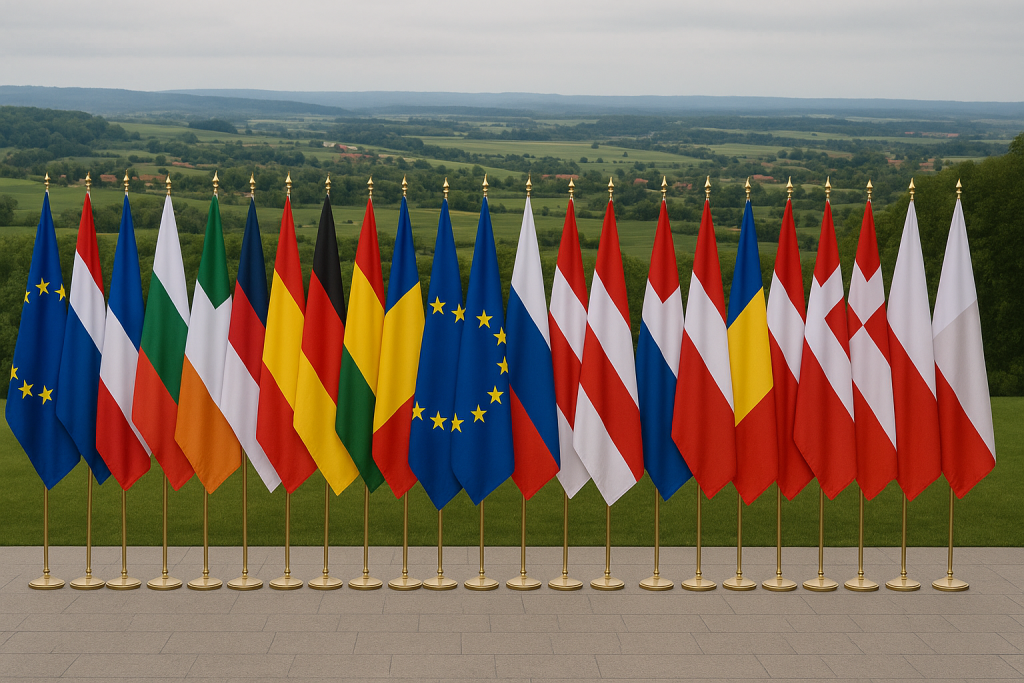
La réunion inaugurale de la Communauté politique européenne (CPE) s’est tenue le 6 octobre 2022 à Prague, réunissant 44 dirigeants de tout le continent ainsi que le président de la Commission européenne et celui du Conseil européen. Dans le contexte de la guerre menée par la Russie en Ukraine, cette réunion visait à renforcer leur coopération sur des questions d’intérêt commun, notamment la paix et la sécurité, la situation économique, l’énergie et le climat, ainsi que les migrations et la mobilité.
Un deuxième sommet de la CPE se tiendra le 1er juin 2023 à Chisinau, en Moldavie. Une réunion est un événement ; deux réunions constituent une institution. Cela montre que les participants apprécient ce format et souhaitent s’appuyer sur la CPE pour aider l’Europe à traverser cette période géopolitique difficile.
Une réunion de tous les dirigeants européens en Moldavie, un pays voisin de la zone de guerre, menacé par la Russie et candidat à l’adhésion à l’UE, enverra en soi un signal politique fort. La photographie sera le message.
La réunion en Moldavie contribuera également à ancrer l’EPC comme un forum où les dirigeants peuvent discuter de questions qui ont un impact sur la sécurité et la prospérité du continent sans discours préparés ni communiqués préétablis. Où ils peuvent avoir des échanges francs et parvenir à une compréhension collective des besoins de chacun. Le caractère informel permettra des échanges fructueux.
Avec les deux prochains sommets déjà programmés, en Espagne à l’automne, puis au Royaume-Uni au cours du premier semestre 2024, l’EPC peut devenir une réunion régulière des dirigeants à l’échelle continentale, donnant une impulsion politique à l’agenda européen. Au-delà des circonstances de la guerre qui prévaut actuellement, son format, à la fois informel et intergouvernemental, pourrait s’avérer avoir une valeur ajoutée à trois égards :
- Forum de discussion sur les questions stratégiques
L’EPC offre le cadre informel nécessaire pour favoriser les discussions au plus haut niveau politique. Tous les dirigeants présents au sommet de Prague ont apprécié cette occasion unique d’échanger directement, sur un pied d’égalité et sans résultat immédiat attendu, sur la sécurité du continent et d’autres questions d’intérêt stratégique commun, telles que la migration. En favorisant les contacts personnels entre les dirigeants dans une atmosphère de club, il contribue à développer un sentiment d’appartenance au même continent, au-delà de l’UE. Avec la participation essentielle du Royaume-Uni et de la Turquie, il offre les canaux de dialogue, en dehors des formats institutionnels existants, qui sont nécessaires à l’Europe pour renforcer son affirmation et sa visibilité.
- Pôle diplomatique pour les différends régionaux
Les sommets de l’EPC offrent de nouvelles possibilités de dialogue aux dirigeants de pays en proie à des différends de longue date. Par exemple, le sommet de Prague a permis l’organisation de discussions bilatérales entre les dirigeants arméniens et azerbaïdjanais et entre les dirigeants serbes et kosovars, avec la participation d’autres pairs qui ont contribué à faciliter le processus. Une fois encore, le caractère informel offre une certaine souplesse, mais aussi une pression par les pairs pour faire avancer les solutions.
- Catalyseur politique pour une coopération concrète
Une réunion régulière des dirigeants peut également servir à donner un nouvel élan aux initiatives de coopération paneuropéennes qui améliorent la vie de millions d’Européens. Le sommet de Prague a identifié sept domaines de coopération concrète conformes aux intérêts stratégiques du continent que l’EPC est censé poursuivre : l’énergie, les infrastructures critiques, la cybersécurité, la jeunesse, les migrations, la coopération régionale dans la mer Noire et le Caucase.
La présente note formule des suggestions d’initiatives concrètes que l’EPC pourrait articuler dans trois domaines : la cybersécurité, l’éducation des jeunes et les migrations. Conformément à la nature intergouvernementale de l’EPC, les initiatives proposées sont conçues comme des formes de coopération renforcée entre les membres de l’EPC plutôt que comme nécessitant de nouvelles structures organisationnelles spécifiques. Compte tenu des nombreuses initiatives qui existent déjà au sein et entre les membres de l’EPC, le choix des initiatives proposées a été guidé par leur valeur ajoutée. En fin de compte, ces propositions renforceraient la visibilité géopolitique de l’Europe tant pour ses citoyens que pour les pays tiers.
Cette note a été élaborée à l’issue d’un dialogue entre des universitaires issus des principales universités européennes et des groupes de réflexion de toute l’Europe, sous la houlette de Sciences Po et de l’Institut Jacques Delors.
Participants issus des institutions suivantes : Alliance Civica des universités européennes ; Centre franco-autrichien pour le rapprochement en Europe (CFA/ÖFZ) (Autriche) ; CIDOB (Espagne) ; CIRD (Serbie) ; Institut Clingendael (Pays-Bas) ; Egmont – Institut royal des relations internationales (Belgique) ; ELIAMEP-Fondation hellénique pour la politique européenne et étrangère (Grèce) ; EDAM-Centre d’études économiques et de politique étrangère (Turquie) ; EU ISS (Institut de l’Union européenne pour les études de sécurité) ; Global Relations Forum (Turquie) ; Instituto Elcano (Espagne) ; Istituto Affari Internazionali (Italie) ; IWM Vienne (Autriche) ; Institut polonais des affaires internationales (Pologne) ; SWP- Institut allemand pour les affaires internationales et de sécurité (Allemagne).

